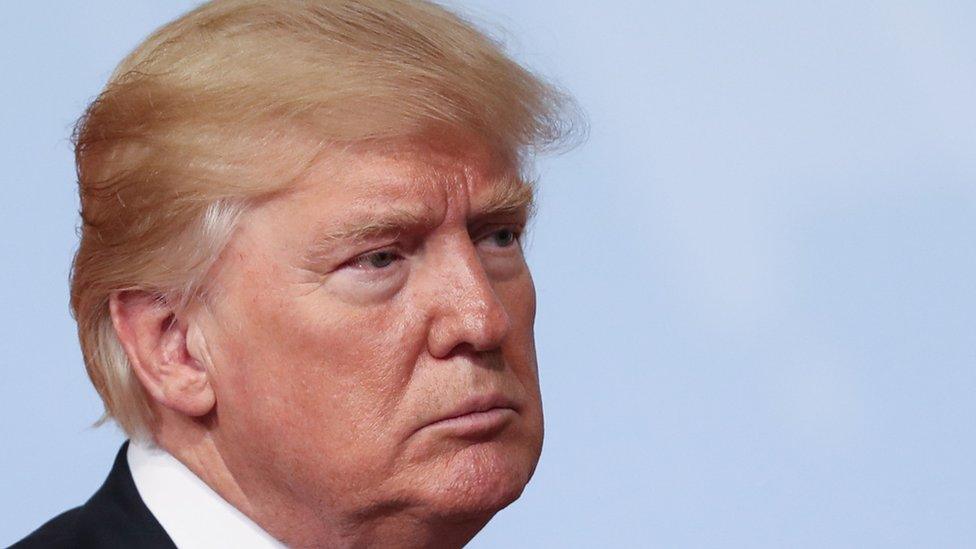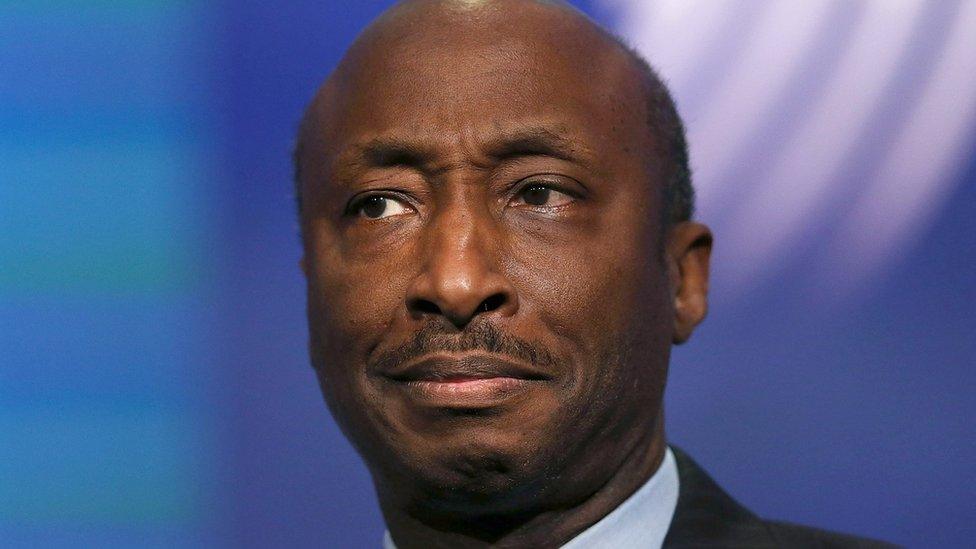Business mutiny leaves Trump isolated
- Published

Donald Trump, the man who promised to pilot American industry back to greatness, suddenly cuts a very lonely figure as his corporate lieutenants have jumped ship.
First overboard was Kenneth C. Frazier, the chief executive of drugmaker Merck who resigned from the manufacturing council on Monday.
Later that day two more - the bosses of Under Armour and Intel followed suit. It then became a stampede.
When the formerly loyal GE boss Jeff Immelt bailed out it was becoming clear the ship was sinking.
Stephen Schwarzman, the boss of Blackstone and the head of the President's Strategic Policy Forum, hosted a conference call with the rest to discuss the growing crisis and then it became a race between the president and the ones left who would announce its termination.
Trump has claimed he won - no one buys it.
Strange relationship
The truth is these groups haven't done much apart from sit awkwardly around the president for the cameras while suffering occasional missile attacks via Twitter on their own businesses.
But they went along with the performance. JP Morgan boss Jamie Dimon spoke for many when he said recently: "Do I agree with every policy or everything he says? No - But he is steering the plane we are on and so I'm going to support him."
This was all before the president's failure to condemn the actions of white supremacist groups at a far-right rally over the weekend with sufficient consistency and conviction.
His equivocation on such a charged issue proved too much for Ken Frazier of Merck - an African American - and prompted him to lead the mutiny - or desertion.

Mr Frazier was the first boss to resign from the council after the clashes in Virginia
The focus will now switch to the former corporate titans with real administrative power and influence.
Rex Tillerson, former boss of Exxon and now Secretary of State, and Gary Cohn, former president of Goldman Sachs and Trump's chief economic adviser, must be feeling a bit uncomfortable as they see their corporate kin turn tail.
The president has always had a strange relationship with big business.
His attacks on corporate America for exporting US jobs were at the heart of his appeal for many. He blasted Wall Street for helping destroy Main Street to wild applause.
Friendless
As soon as he was in office he offered jobs in the administration to the top brass of those very companies.
He has already reverted to the rhetoric of the campaign trail by implying many of these companies were not really friends of the American worker.
What is most damaging, perhaps, is the fact that they are no longer seen as friends of the president. Losing the support and loyalty of the great and the good of US business will surely damage people's belief in his ability to lead the economy to prosperity.
The markets seem unruffled. That in itself is damaging to him.
It is evidence of the reduced importance of a figure who has already been defied by Congress and now looks friendless in the world of business.